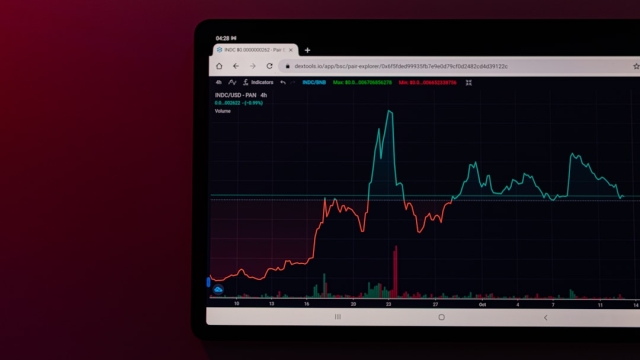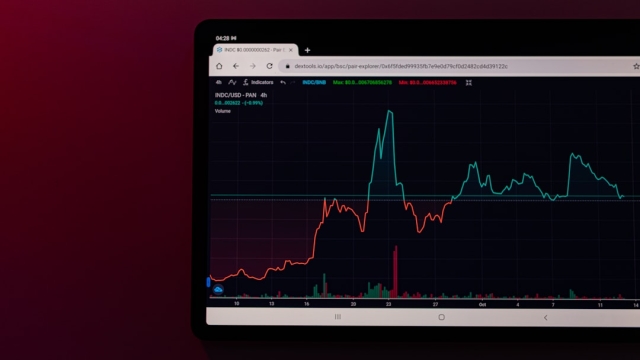Uncovering Hidden Gems: Exploring the Art of Web Scraping

The internet is a vast treasure trove of information, with billions of web pages containing valuable data waiting to be discovered. However, navigating through this sea of information can be a daunting task. That’s where web scraping comes in. Web scraping is the art of extracting data from websites automatically, enabling businesses and individuals to retrieve, analyze, and utilize valuable web data effectively.
At "Scraping Pros," we specialize in transforming web data into a powerful business advantage. Our team of experts leverages the latest tools and technologies to scrape websites and gather data that fuels data-driven decision making. With our expertise, you can unlock a wealth of insights, uncover hidden trends, and gain a competitive edge in today’s data-driven landscape.
By harnessing the power of web scraping, you can gather real-time data from various sources and analyze it to make informed decisions. Whether you’re an e-commerce business looking to track competitor prices, a marketing agency in need of social media data, or a researcher gathering information for a study, web scraping can be a game-changer.
In this article, we will explore the art of web scraping, its benefits, and the various techniques and tools you can use to scrape web data effectively. So, buckle up and get ready to discover the hidden gems that lie within the vast world of web scraping. It’s time to turn web data into your ultimate business advantage and fuel your success with data-driven decision making.
Benefits of Web Scraping
Web scraping is a powerful technique that unlocks a myriad of benefits for businesses. By harnessing the capabilities of web scraping, companies can gain valuable insights and leverage data in a way that was not previously possible. In this section, we will explore three key benefits of web scraping.
Enhanced Competitive Intelligence
Web scraping allows businesses to gather valuable data about their competitors, enabling them to gain a competitive edge. By monitoring competitor websites and extracting relevant information, companies can stay up to date with market trends, pricing strategies, product launches, and much more. This valuable intelligence can inform decision-making processes, helping businesses adapt and stay ahead in a dynamic marketplace.
Improved Market Research
Web scraping empowers businesses to conduct comprehensive market research, gathering information from a wide range of sources to gain a holistic understanding of their target market. By extracting data from websites, forums, social media platforms, and other online sources, organizations can analyze consumer behavior, track sentiment towards their products or services, identify emerging trends, and adjust their marketing strategies accordingly. This invaluable market research allows businesses to make data-driven decisions, minimizing risks and maximizing opportunities.
Streamlined Lead Generation
Web scraping is an invaluable tool for lead generation, enabling businesses to build a database of potential customers. By extracting contact details, job titles, company information, and other relevant data from websites and online directories, organizations can identify and target their ideal customers more effectively. This streamlines the lead generation process, saving time and resources while increasing the chances of converting leads into sales.
In the next sections, we will delve further into the art of web scraping and explore how it can revolutionize data-driven decision making for businesses. Stay tuned!
Best Practices for Web Scraping
When it comes to web scraping, implementing best practices is essential to ensure the success and efficiency of your data retrieval process. Here are three recommended practices for effective web scraping:
-
Respect Website Terms and Conditions:
Before scraping any website, it is crucial to review and comply with the terms and conditions set by the website owner. Some websites may explicitly prohibit scraping or impose certain restrictions. By respecting these terms, you can maintain a positive relationship with website owners and avoid any legal issues. -
Use Robust Scraping Techniques:
To ensure reliable and accurate data extraction, employing robust scraping techniques is paramount. This involves choosing the appropriate tools and libraries, such as BeautifulSoup or Scrapy, that can handle different types of web content. Additionally, implementing appropriate error handling mechanisms, like handling timeouts or HTTP errors, can help overcome potential obstacles during the scraping process. -
Practice Polite Crawling Behavior:
To prevent overloading servers and causing disruptions to the website you are scraping, it is vital to practice polite crawling behavior. This includes setting a reasonable crawling rate by implementing delays between requests, thus mimicking human browsing behavior. Additionally, using a user agent that identifies your crawler and respects website-specific guidelines can help maintain good etiquette while scraping.
By following these best practices, you can ensure a smooth and efficient web scraping experience while fostering positive relationships with website owners.
Tools and Techniques for Web Scraping
Web scraping has become an essential skill for extracting valuable data from websites. With the right tools and techniques, you can uncover hidden gems of information that can fuel data-driven decision making. In this section, we will explore some popular tools and techniques used in web scraping.
-
Python and BeautifulSoup: Python is a versatile programming language that is widely used for web scraping. It offers a variety of libraries and frameworks to simplify the scraping process. One such library is BeautifulSoup, which provides a convenient way to parse and extract data from HTML and XML documents. With its intuitive syntax, BeautifulSoup makes it easier to navigate through the structure of web pages and extract the desired information.
-
Scrapy: Scrapy is a powerful and flexible Python framework designed specifically for web scraping. It provides a comprehensive set of features and tools to streamline the scraping process, making it easier to extract data from multiple websites efficiently. Scrapy allows you to define the structure of your spider, navigate through pages, and extract data using XPath or CSS selectors. Its built-in support for handling cookies, sessions, and form submissions adds to its versatility.
-
Selenium: While BeautifulSoup and Scrapy are great for parsing static HTML, sometimes websites rely heavily on JavaScript to load and display content dynamically. In such cases, Selenium comes to the rescue. Selenium is a popular automation tool that allows you to control web browsers programmatically. By simulating user interactions, such as clicking buttons or filling out forms, Selenium enables you to scrape websites that heavily rely on JavaScript for rendering content.
By utilizing these tools and techniques, web scraping becomes a powerful resource for gathering web data. Whether you are conducting market research, monitoring competitors, or tracking trends, web scraping can provide vital insights that fuel your success. With the right approach, it opens up a world of hidden gems waiting to be discovered and transformed into valuable business advantages.


